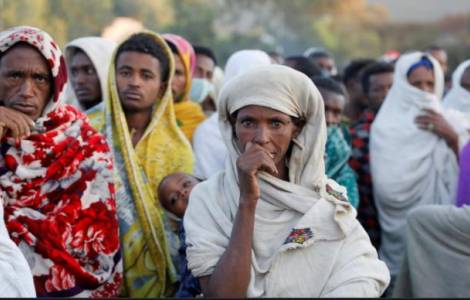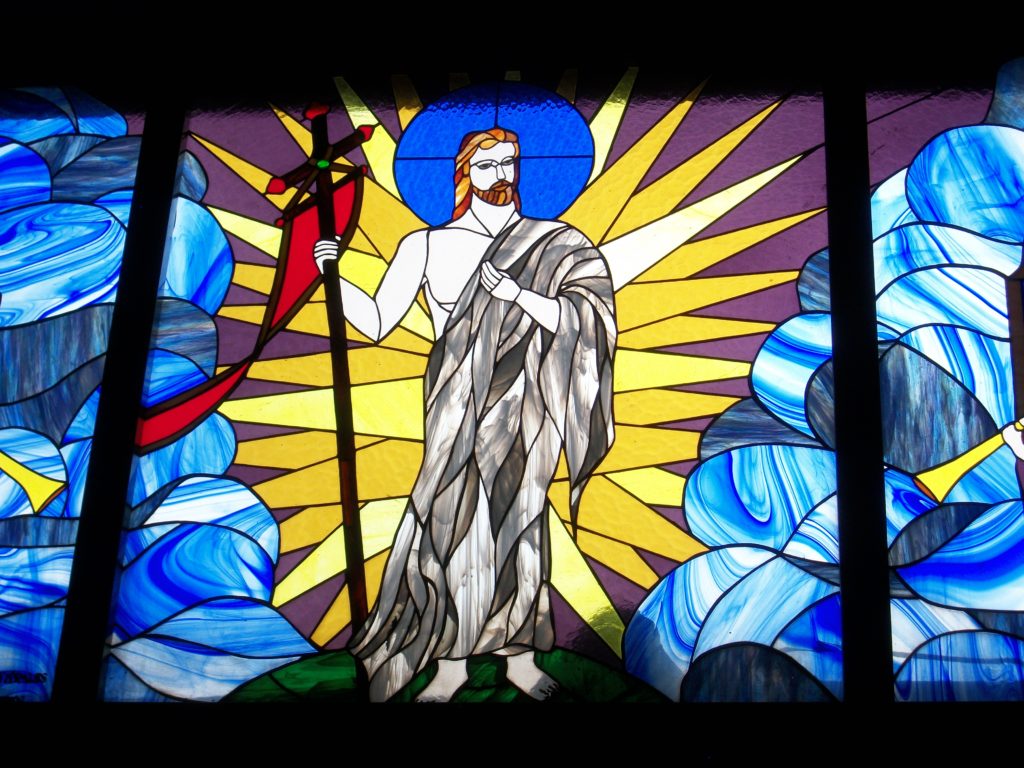Apostolic Vicar Saddened by Tigray Unrest
Bishop Seyoum Fransua Noel, Apostolic Vicar of Hosanna and National Director of the Pontifical Mission Societies in Ethiopia

“I am deeply saddened by everything that is happening in the Tigray region and in the regions alongside Amhara and Afar, even though unrest has been occurring throughout the country for at least a year, which has now dramatically degenerated”, says Bishop Seyoum Fransua Noel, Apostolic Vicar of Hosanna and National Director of the Pontifical Mission Societies in Ethiopia to Agenzia Fides. “When there is a conflict, the victims are the poor, it is necessary that there is a dialogue between the parties to restore a social balance. War is useless, people are suffering a lot, it is necessary to seek peace and security”, notes the Apostolic Vicar of Hosanna. The Bishop launches an appeal to prayer: “It is necessary to pray, to have a dialogue with God, true peace comes only from God, I ask everyone to pray for this situation”.
As sources of Fides confirm, the situation in Ethiopia is dramatic: one year after the outbreak of the war in Tigray, chaos reigns, and the leadership of Prime Minister Abyi seems to be hanging by a thread.
The great African country, until a few months ago was considered a model. Headquarters of the African Union, center of political stability in one of the “hottest” areas in the world, was a nation with a rapidly growing economy and a leader who was awarded the Nobel Peace Prize in 2019 for facilitating international cooperation, reconciliation with neighboring Eritrea and initiated important reforms. Now, according to observers, this horizon seems lost in just 12 months. On November 3, 2020, the Tigray People’s Liberation Front (Tplf), after having held an electoral round without the authorization of Addis Ababa, closed all communications with the rest of the country and took control of the region, after having conquered military weapons and facilities. Prime Minister Abiy, leader of the Oromo ethnicity (a majority group in Ethiopia, but historically in conflict with the central government for alleged discrimination), and leader of the Pentecostal Christian denomination in a country with an overwhelmingly Orthodox Christian majority, immediately sent troops giving the go-ahead to a military escalation, ignoring the internal and external voices that advised him to resort to dialogical means.
Gradually, the northern area of the country plunged into a serious humanitarian crisis: thousands of deaths among the military on both fronts and, above all, among the defenseless population; massacres, carnage, mass rape, looting, and mutilation of innocents; 5.2 million inhabitants (out of about 6.5) are in a state of dramatic need for food while internally displaced persons amount to 2.1 million (to which must be added the more than 60 thousand who fled to Sudan). The conflict, meanwhile, has spread to the Afar and Amhara regions.
For the country’s economy, the war meant a collapse. Military expenses have risen to over 500 million dollars in a year and there has been the flight of investors – who up to the end of 2019 looked to Ethiopia as the ideal destination. The abandonment of land, pastures, and livestock in many areas affected by war and recurrent famines, has created a situation of poverty and, while economic growth from 10-11% in the pre-conflict time has dropped to 2% in 2021.
Meanwhile, the Tplf has conquered Dessie and Kombolcha, two cities just 400 km from Addis Ababa, and also announced the imminent capture of Kemise. The Oromo Liberation Army (Ola), an ally of the Tplf since August, declared that the capture of the capital is “a matter of months, if not weeks”.
Prime Minister Abiy called his fellow citizens to revolt against the “traitorous enemy of the people”. The rumors, reported by the local press, on the possible use of milder attitudes and negotiating tables, await feedback. The Prime Minister recently said in an official statement: “The TPLF is to blame: it was the Tigrinya terrorists who pulled the trigger of the war”.
Related

The Perspectivas del Trabajo Foundation is founded with the aim of promoting virtues for professional development
Exaudi Staff
25 April, 2025
2 min

Reflection by Bishop Enrique Díaz: Alleluia, alleluia
Enrique Díaz
20 April, 2025
5 min

Christ is Risen! Alleluia! Commentary by Fr. Jorge Miró
Jorge Miró
20 April, 2025
3 min

Easter: Mystery of Freedom
Carlos J. Gallardo
20 April, 2025
5 min
 (EN)
(EN)
 (ES)
(ES)
 (IT)
(IT)

